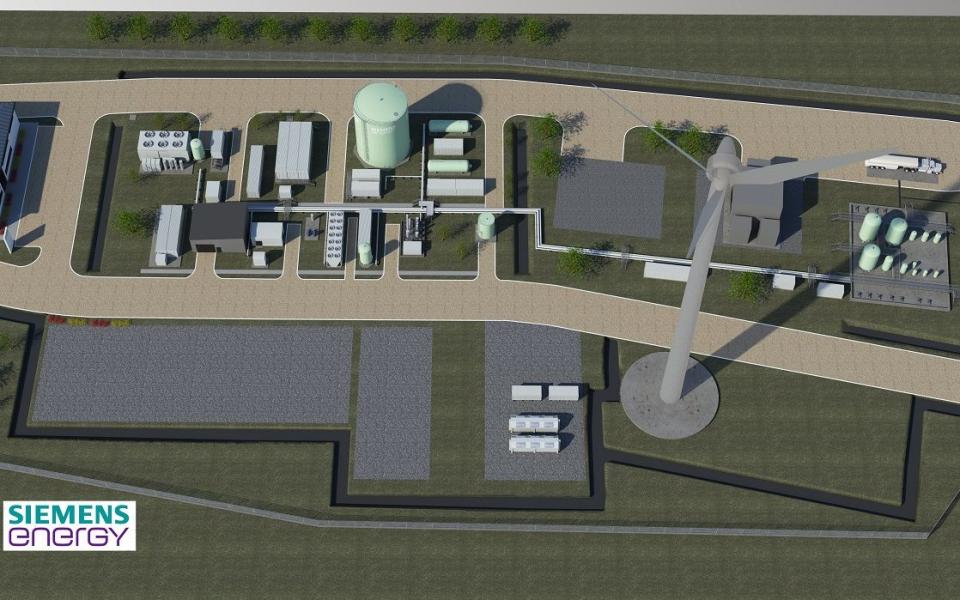Porsche reveals its climate-neutral synthetic fuel for use within two years

“We don’t want to get into the fuel business,” has been the perennial cry from the motor industry, but now it appears they’ve been forced into it, with car companies investing in electric recharging, hydrogen-fuelling infrastructures and now environmental fuels as Porsche unveils its latest scheme for climate-neutral petrol.
The plan is to provide a synthetic renewable petrol, which would be suitable for existing and older combustion engines and would cost “about the same” as current pump prices, according to Dr Michael Steiner, Porsche’s research and development director.
The reality, however, seems so convoluted that if it were anyone other than Porsche’s formidable engineers suggesting it, you might be moved to look at the calendar to see if it was the first of April.
The genesis of this renewable petrol starts at wind turbines installed in the Magallanes Province on the extreme south of Chile’s 2,700-mile length, where the wind blows hard (some sites have average wind speeds of well over 10 metres per second, or 22mph) and frequently (more than 6,000 hours per year).
That renewable electricity is used to electrolysize water into oxygen and hydrogen with electrolysers from engineering giant Siemens. Then the “green” hydrogen is combined with carbon dioxide captured from the atmosphere to form synthetic methanol, which in turn is converted into synthetic pump fuel using a methanol-to-gasoline process by Exxon Mobil, before it is shipped to Europe.
Other partners in this project, named Haru Oni, are the energy firm AME and the petroleum company ENAP from Chile, along with Italian energy company Enel.

Porsche plans to use the fuels resulting from this pilot study in racing cars, vehicle trials and eventually production sports cars. In the pilot phase, around 130,000 litres of e-fuels will be produced as early as 2022.
In two further phases, capacity is then to be increased to about 55 million litres of e-fuels a year by 2024, and about 550 million litres annually by 2026. By way of comparison, according to the Petrol Retailers Association, in 2019 Britain consumed 16.2 billion litres of petrol.
Steiner says there would be no engine modifications required and the infrastructure is already in place, with perhaps the e-fuel occupying the pumps currently used to distribute the current E10 ethanol/petrol mix fuel. As to how much this green elixir will cost, Steiner says that this is why the trials are taking place.

“It’s a lot to do with the overall efficiency,” he says, “which is why we have the whole chain in one location. When we know [the results], we will have more precise pricing.”
Steiner admits the process is convoluted and not particularly efficient, but points to Europe’s deficiency in energy which will involve us importing energy in future whether we like it or not.
“Electric vehicles in Europe would be by far the best solution,” he says, [Porsche already makes the Taycan EV sports saloon] “but the question is how we import energy in future and is that energy fossil [fuel] or renewable.
“There is room for such energy [as this],” he asserts, “for the existing fleet of cars, legacy vehicles and the new plug-in hybrid vehicles.”

There are clearly moral questions about the exploitation of Chile’s natural wealth in renewable energy (the country also has considerable potential for other renewable energy generation with geothermal power and massive solar energy potential), but centring the entire fuel production in Chile does mean valuable foreign currency sales and, just as importantly, local employment.
But what about the UK, where the Government has ordered a ban on combustion-engined car sales in less than 10 years. Is this clean petrol a green alternative to battery cars and if it is adopted in Europe will Britain look like a green opportunist with egg on our faces?
Steiner looked inscrutable when he said that a major driver to the success of the fuel “will be the willingness of regulators to give such a fuel a chance, and the price tag that is put on CO2. E-fuels could help to give a faster boost towards net zero as well as making us more sustainable in the next decades”.
Over to you, then, HM Government.
For new and used buying guides, tips and expert advice, visit our Advice section, or sign up to our newsletter here
To talk all things motoring with the Telegraph Cars team join the Telegraph Motoring Club Facebook group here

 Yahoo News
Yahoo News 